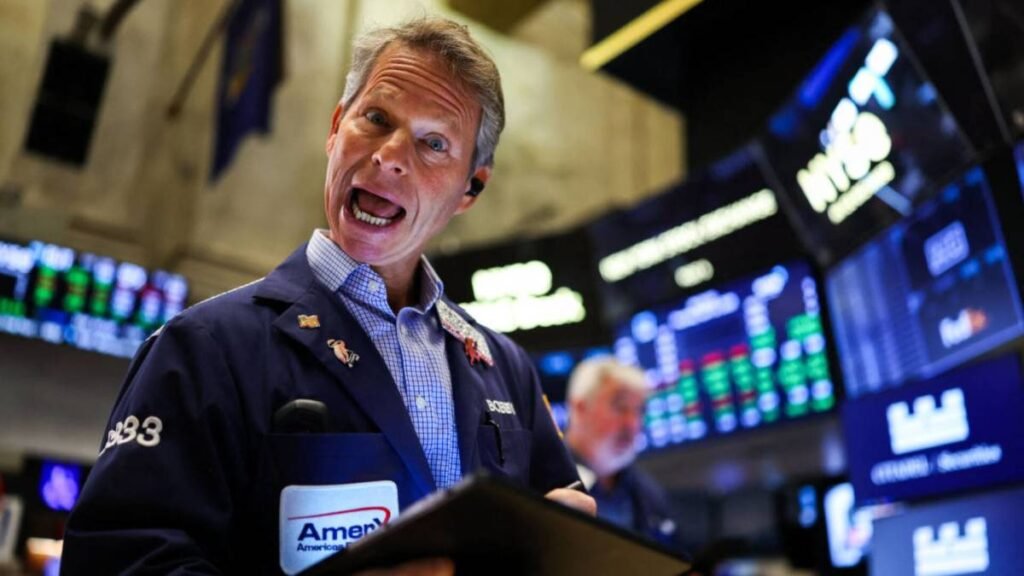Culpepper Research has levied harsh accusations at a popular digital technology company, and not for the first time this year.
The activist short-selling firm recently laid out a detailed case against Applovin (APP) , a fast-growing company in the mobile technology space that has enjoyed explosive growth over the past year. Culpepper revealed a short position in APP stock, though, alleging that the tech company is engaged in highly nefarious activity.
💵💰Don’t miss the move: Subscribe to TheStreet’s free daily newsletter💰💵
While APP stock is up almost 400% for the year, it has struggled recently, dipping 10% over the past week. This is likely partially due to the company being excluded from the most recent S&P 500 quarterly rebalance.
However, Applovin may have bigger problems if the harsh accusations made by Culpepper Research turn out to be true. The short-seller doesn’t just see the tech firm as a poor investment; it believes it may be a national security risk.
Image source: Triballeau/Getty Images
Short seller doesn’t hold back while critiquing Applovin
Applovin is a company focused primarily on digital apps, specifically helping businesses connect with new customers through various digital platforms. Its services measure apps’ performance, as well as user acquisition and monetization. The stock offers investors exposure to multiple tech markets, including digital game development and in-app advertising.
💵💰Don’t miss the move: Subscribe to TheStreet’s free daily newsletter💰💵
While its shares have risen steadily over the past year, Culpepper Research has been conducting an investigation, culminating in two detailed reports. In February 2025, the short-selling firm accused Applovin of illicit backdoor app installations, claiming that each one helped the company profit.
Now it seems to be doubling down on the short position. In its more recent report, Culpepper zeroed in on Applovin’s alleged ties to Chinese investors, speculating that the company has misrepresented “the scope of both its Chinese shareholders and its Chinese operations,” compromising U.S. national security.
“We believe AppLovin has been backed since at least 2017 by Chinese national Hao Tang, who – through a web of offshore shell companies and aided by AppLovin’s vague if not deliberately obfuscated disclosures – controlled up to 28% of AppLovin Class A shares ahead of the Company’s 2021 IPO, and continues to control at least 9.8% of Class A shares,” the short report states.
It adds that “undisclosed to AppLovin investors, Tang has entered into various margin loan agreements and share forward transactions that our checks indicate remain open as of at least May 2025.”
Culpepper also points out that Applovin CEO Adam Foroughi has repeatedly denied any claims of Chinese ownership or operational ties regarding his company. It cites an April 2025 Fox News interview in which he stated, “I don’t know any [investors] that make up a material part of our cap table. Everyone’s small.”
More Tech Stock News:
- Tech IPO smash reveals something shocking
- Broadcom could blow past Nvidia, expert predicts
- Veteran analyst unveils bold price target for Tempus AI stock
The short report’s authors state, though, that in their view, the company’s history disproves the CEO’s claims regarding his knowledge of any investors, Chinese or otherwise. In their eyes, it is clear that under his leadership, Applovin has been less than truthful with the disclosures it provides for investors.
Culpepper raises major concerns regarding Americans’ data
The bulk of Culpepper’s bearish thesis centers around Hao Tang and his alleged ties to Applovin, specifically his controlling stake. However, it also highlights Applovin’s quest to acquire TikTok’s former China assets, which Foroughi framed earlier this year as an opportunity ripe with potential.
Related: Heavily shorted AI stock is rapidly climbing the Fortune 500
In any case, the short-seller sees Applovin’s ties to Tang as the most concerning element of its business. As the report states:
“Tang’s network is involved in money laundering, human trafficking, illegal gambling, and data-harvesting. These are all activities the U.S. government has time and time again called out in China. In our view, Tang’s background disqualifies AppLovin’s pursuit of TikTok’s ex-China business, and AppLovin’s misleading disclosures around Tang’s ownership suggests a cover-up.”
Culpepper adds that it believes federal regulators will need to assess if a major tech company can be trusted with the data of many Americans if it harbors ties to actors like Tang, who are connected to the Chinese Communist Party. So far, Applovin has issued no statement in response to the accusations made against it in the short report.

